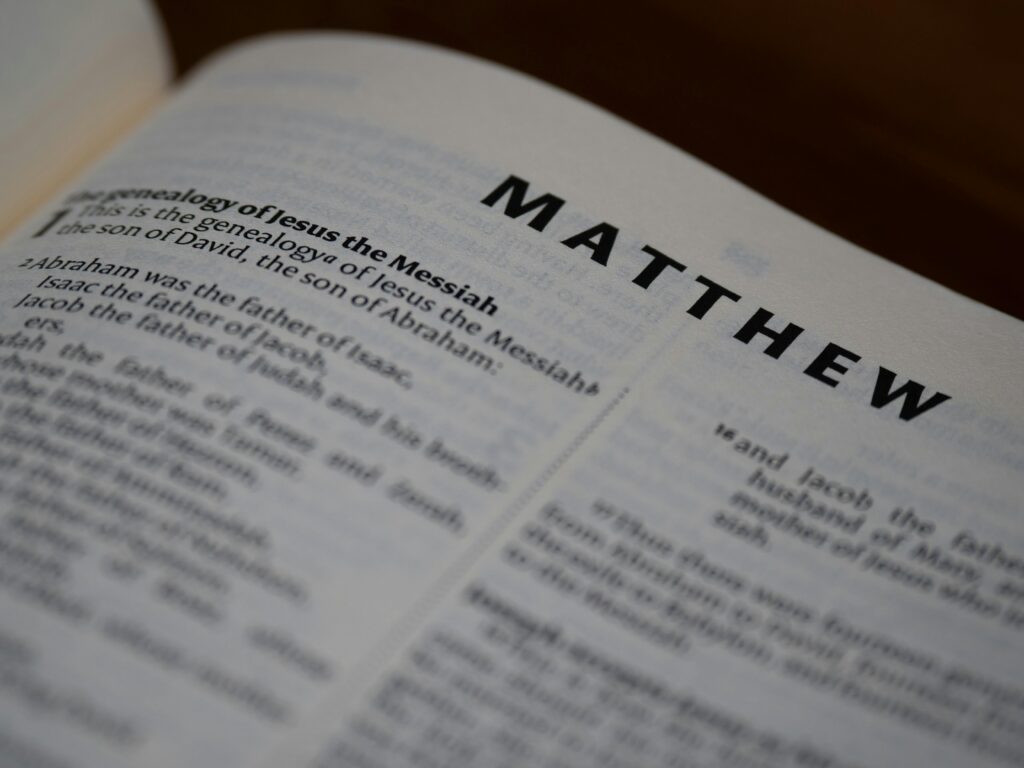A reflection on the grand arc of promise within scripture that underlines the surety of our trust in God’s promise.
There are few joys in this life that compare to the quiet morning hour before I start work, a mug of tea cooling on my desk, and the well-worn cover of my ESV study Bible open before me. It’s in these moments of contemplation that the sheer, indeed breath-taking mystery of the Bible’s creation truly settles upon my spirit. For years, I, like many of you, have wrestled with the profound realisation that this collection of scrolls, letters, histories, and poems, penned by dozens of fallible men over sixteen centuries, is, in fact, the very Word of God. Yet, as a believer of some 22 years and counting, I find that the evidence – both internal and external – does not merely suggest this truth; it sings it with a chorus that deafens the honest skeptic’s ear. This is not some dusty, academic theory; it is the living, vibrant testimony to God’s careful, intimate engagement with humanity.

My approach to the Bible rests firmly on the doctrine of inspiration, a concept beautifully encapsulated by the phrase “dual authorship.” This means that God is the primary author, providing the divine guarantee and substance of the message, while various human beings served as the secondary, instrumental authors, contributing their unique voices and contexts. Think of it not as a stiff dictation, not some celestial secretary barking orders more, as an organic living relationship resulting in the unified message we have today.
The Apostle Paul gives us the foundational stone for this understanding in 2 Timothy 3:16, declaring that “All Scripture is God-breathed (theopneustos) and is useful for teaching, rebuking, correcting and training in righteousness.” That word, theopneustos, is crucial; it speaks not merely of God influencing the text, but of Him exhaling it, breathing His very life and truth into the written word. This ensures its complete trustworthiness and ultimate authority.
Simultaneously, we acknowledge the human element. The gentle pastoral heart of Luke, the fiery prophetic voice of Amos, the intellectual rigor of Paul, and the majestic simplicity of John all shine through. Peter affirms this dynamic process when he writes in 2 Peter 1:21, that “prophecy never had its origin in the human will, but prophets, though human, spoke from God as they were carried along by the Holy Spirit.” The Greek term for “carried along” (pheromenoi) suggests that the Holy Spirit superintended the process, guiding the human authors to write precisely what God intended, while allowing their personality and linguistic quirks to remain intact. It’s a wonderful, miraculous convergence of the Divine will and the human intellect, preserving the character of both.
Now, perhaps the most compelling argument for a single divine author is the Bible’s astonishing unity and coherence.
How else can 66 books, written by an eclectic mix of 44 authors, from shepherds, kings, priests, doctors, to fishermen, over some sixteen hundred years AND across three continents (Asia, Africa, Europe), in three languages (Hebrew, Aramaic, Greek), and spanning every known literary genre, maintain a single, unified narrative?
The theme, the heartbeat of the entire corpus, is the redemption of humanity through a Messiah.
From the initial promise in the Garden of Eden of a seed that would crush the serpent (Genesis 3:15), to the establishment of a covenant with Abraham (Genesis 12:1-3), to the law given through Moses, the psalms of David, and the clarion calls of the prophets, every piece of the Old Testament looks forward. And every piece of the New Testament, from the Gospels to Revelation looks back, testifying that Jesus of Nazareth is the fulfillment of that long-awaited plan.
The human mind cannot imagine let alone orchestrate such a consistent, complex, and beautiful narrative over such a vast span of time without a central, eternal intelligence guiding the hands of the scribes. This is why Jesus himself could declare to His disciples after His resurrection, “These are my words that I spoke to you while I was still with you, that everything written about me in the Law of Moses and the Prophets and the Psalms must be fulfilled” (Luke 24:44). He asserts that the entire Old Testament structure, from its legal codes to its poetic literature, was about Him, a literary feat that is humanly impossible.
While the internal consistency is impressive, the most dramatic evidence of divine authorship lies in the hundreds of prophecies laid out in the Old Testament that are meticulously fulfilled in the life, death, and resurrection of Jesus Christ. This isn’t vague fortune-telling; these are often minute, specific details concerning location, timing, manner of death, and post-mortem events.
To illustrate, consider the precision of God’s planning:
- The prophecy of the Messiah’s birthplace is found in Micah 5:2, pinpointing Bethlehem, a minor village, hundreds of years before the event. Matthew 2:1-6 records the fulfilment.
- His Triumphal Entry is prophesied in Zechariah 9:9, specifying that the King would come “humbly, riding on a donky, on a colt, the foal of a donkey.” The Gospel accounts in Matthew 21:1-5 detail the exact fulfillment, down to the two animals.
- The horrific details of the Crucifixion are foretold in Psalm 22, a lament written by David a thousand years before the cross. Psalm 22:16, for instance, cries out, “they have pierced my hands and my feet,” a description accurate for crucifixion, a method of execution not even invented in David’s time!
- The act of betrayal is detailed in Zechariah 11:12, stating the Messiah would be betrayed for 30 pieces of silver. Matthew 26:15 records Judas doing just this.
- Following the betrayal, Zechariah 11:13 specifies that the money would be thrown to the potter in the house of the Lord. Matthew 27:5-10 confirms this sequence of events with remarkable, unsettling accuracy.
- Even seemingly random events, like the soldiers gambling for his clothing (Psalm 22:18), find their precise fulfilment at the foot of the cross (John 19:23-24).
- The final, greatest act – His resurrection – is predicted in Psalm 16:10: “For you will not abandon my soul to Sheol, or let your holy one see corruption.” This promise, fulfilled in Acts 2:25-32, is the ultimate divine signature on the text.
The complexity of these hundreds of intersecting prophecies cannot be dismissed as mere coincidence, not even by the most ardent doubter. The sheer mathematical impossibility of one person fulfilling so many specific predictions, all written centuries beforehand, is the unmistakable fingerprint of an all-knowing, eternal God orchestrating history and recording His plan in advance.
It proves the Scriptures were not devised by the mind of man, but breathed out by the mind of the Creator.

Beyond the academic and the historical, the continuing proof of the Bible’s divine authorship is its power to transform lives. Hebrews 4:12 tells us that “the word of God is living and active, sharper than any two-edged sword, piercing to the division of soul and of spirit, of joints and of marrow, and discerning the thoughts and intentions of the heart.”
This text doesn’t just contain God’s word; it is God’s word, and it retains the life-giving power of its Divine Author. It is not merely a historical document or a book of morals; it is a spiritual instrument used by the Holy Spirit to bring about conversion and sanctification. This efficacy, this ability to change hearts and whole societies, is a theological and empirical reality that testifies to the Divine breath still residing within its pages. We, as Christians, believe that God is not silent. He speaks, and this volume, bound with the wisdom of the ages, is the primary means by which He conveys His wisdom and grace to His people.
So, when I open my well-worn Bible, I am not simply reading the history of ancient Isreal, or a collection of stories no, I am encountering the very voice of the living God, conveyed through the charming, unique, and deeply human voices of His chosen prophets and apostles. It is a mystery, yes, but one that is wonderfully, powerfully true.
Here’s just a brief sample of some of the prophecies and their corresponding fulfilments…
| Prophecy Subject | Old Testament Reference | New Testament Fulfilment |
| Seed of Woman (Messiah’s origin) | Genesis 3:15 | Galatians 4:4 |
| Descendant of Abraham | Genesis 22:18 | Matthew 1:1; Galatians 3:16 |
| Descendant of David’s Royal Line | 2 Samuel 7:12-13 | Matthew 1:1; Luke 1:32-33 |
| Born in Bethlehem | Micah 5:2 | Matthew 2:1 |
| Born of a Virgin | Isaiah 7:14 | Matthew 1:22-23 |
| Preceded by a Messenger | Isaiah 40:3; Malachi 3:1 | Matthew 3:1-3 |
| Called out of Egypt | Hosea 11:1 | Matthew 2:14-15 |
| His Ministry Begins in Galilee | Isaiah 9:1-2 | Matthew 4:13-16 |
| He would Teach in Parables | Psalm 78:2 | Matthew 13:34-35 |
| Heals the Sick and Blind | Isaiah 35:5-6 | Matthew 11:4-5 |
| Rejected by His Own People | Psalm 118:22 | Matthew 21:42 |
| Betrayed by a Friend | Psalm 41:9 | Matthew 26:21-23 |
| Sold for 30 Pieces of Silver | Zechariah 11:12 | Matthew 26:15 |
| The Money is Used for a Potter’s Field | Zechariah 11:13 | Matthew 27:7 |
| Followers Desert Him | Zechariah 13:7 | Mark 14:50 |
| Silent Before His Accusers | Isaiah 53:7 | Matthew 27:12-14 |
| Smitten and Spit Upon | Isaiah 50:6 | Matthew 26:67 |
| Crucified with Criminals | Isaiah 53:12 | Luke 23:33 |
| Intercedes for His Persecutors | Isaiah 53:12 | Luke 23:34 |
| People Mock and Taunt Him | Psalm 22:7-8 | Matthew 27:39-43 |
| Thirsting on the Cross | Psalm 69:21 | John 19:28-29 |
| Hands and Feet Pierced | Psalm 22:16 | John 20:25 |
| Garments Divided and Gambled For | Psalm 22:18 | John 19:23-24 |
| Bones Not Broken | Psalm 34:20 | John 19:33-36 |
| His Heart (Side) Pierced | Zechariah 12:10 | John 19:34 |
| Buried in a Rich Man’s Tomb | Isaiah 53:9 | Matthew 27:57-60 |
| Raised from the Dead | Psalm 16:10 | Acts 2:25-32 |
| Ascends to Heaven | Psalm 68:18 | Acts 1:9-11 |
These are no mere coincidence – indeed one man fulfilling all of these would be so rare as to be considered mathematically impossible yest there are so many more.
And, what is the ultimate lesson of these fulfilled prophecies, meticulously tracked from Genesis to the Gospels? That the Old Testament and the New are not two different books bound together by happenstance, but two halves of a single, beautiful, and complete story the Theo drama, the divine “Project”, “Architecture”, “Plan” call it what you will, of Salvation.
What was veiled in the types and shadows of the Law, in the sacrifices of the temple, and in the poetic utterances of the prophets, is made wonderfully visible in the person and work of Christ, making the entire Bible a seamless, integrated whole that demonstrates God’s complete sovereignty over the vagaries and chaos of human history.
Therefore, beloved reader, I urge you to return to the scriptures with a renewed sense of awe and academic curiosity, allowing the sheer majesty of God’s mastery over time – the God who set in motion the specific, detailed plans of the first Advent, to utterly reinforce the bedrock of your personal faith.
Remember, the God who predicted the minute details of Christ’s suffering and triumph is the same omniscient God who orders your steps and secures your future today, offering profound and unshakable peace in a turbulent world.
And so, may you be blessed in your earnest, daily pursuit of the knowledge of God in Christ and Holy Spirit through His scripture, for “Blessed is the one who reads aloud the words of this prophecy, and blessed are those who hear, and who keep what is written in it” (Revelation 1:3), and may you find in its depths not merely historical documents, but the life-altering and eternal truth of the living Christ.
Pax
Shaun



0 Comments